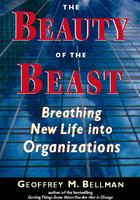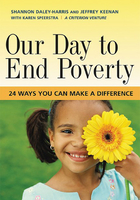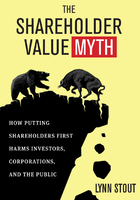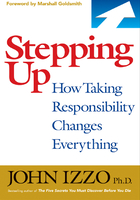The Earth Is a Mosque
The Earth is a mosque, and everything in it is sacred. I learned this basic tenet of Islam from my father. He was raised in New York City in the borough of Queens, spent summers in Virginia, and always loved and respected the natural world. He took it upon himself to share this appreciation with his children. I spent my early childhood in the New York boroughs of Queens and Brooklyn. My brother and I used to think the entire world was a sea of concrete buildings. My father upended that reality the day he took us to Bear Mountain. Just north of New York City, Bear Mountain is known as a hiker's paradise. On that trip, we were black Muslim city kids hiking in “the country” for the first time. What I recall from that day was moss growing on rocks, mushrooms on rotting wood, and drinking from my first juice box—the kind you poke a straw into.
When it was time for the afternoon prayer, my father stopped to pray. My brother and I asked him where he was going to pray. He pointed to the ground, to a small area he had brushed free of twigs and leaves. Until that day, prayer for us had always been something done at home or in the mosque. Our mosque, Masjid At-Taqwa, was an oasis of Islam in the heart of the struggling Bedford-Stuyvesant neighborhood (better known as Bed-Stuy) of Brooklyn. The imam of Masjid At-Taqwa, the respected Siraj Wahaj, later became the first Muslim to give the opening prayer in a session of Congress.[1] My father was one of the first twenty-five brothers involved in building Masjid At-Taqwa. To us, the mosque meant proud black families creating community and praying together.
On Bear Mountain, as we prepared to kneel down in prayer, my father related a hadith, a saying of the Prophet Muhammad (peace be upon him): “Wherever you may be at the time of prayer, you may pray, for it (the Earth) is all a mosque.”[2] At that instant, and I could not have been more than five or six years old, I understood for the first time: the Earth is a mosque; a mosque is sacred; therefore, the Earth is sacred. That moment of prayer on the mountain, thanks to the hadith my father relayed, transformed the way that I would see the world forever.
As an adult, my contemplation of the notion that the Earth is a mosque led to my discovery of the core message of this book—that Islam, the world's second-largest religion, provides a helpful lens to prompt action among Muslims and anyone else concerned about saving the Earth. This lens encompasses a variety of principles—understanding the Oneness of God and His creation (tawhid); seeing signs of God everywhere (ayat); being a steward of the Earth (khalifah); honoring the covenant, or trust, we have with God (amana) to be protectors of the planet; moving toward justice (adl); and living in balance with nature (mizan). Each of these principles points to the same well-kept secret: that Islam teaches a deep love of the planet, because loving the planet means loving ourselves and loving our Creator. That is to say, Islam teaches that we are all One. “The Earth is a mosque” is another way of saying that we are all part of the same, wonderful fabric of creation.
What Is a “Green Deen”?
In Arabic, “Deen” is defined as a religion or creed, a faith or belief, a path or a way.[3] Christianity is a Deen. Judaism is a Deen. Buddhism is a Deen. Islam is a Deen. The Holy Book of Islam is the Qur'an. In the Qur'an there is a surah, or chapter, that directly speaks to “those who reject faith.” This surah, known as the “Al-Kafirun,” or “The Rejecters of Faith,” has an ayat, or verse, that says:
To you then be your way and to me mine. (Qur'an 109:6)
In Arabic, this ayat is read as “lakum deen oo kum wali ud deen.” It is often cited to illustrate that Islam, the religion of 1.4 billion human beings,[4] is, like all things, a choice.
A Green Deen is the choice to practice the religion of Islam while affirming the integral relationship between faith and the environment, or, better said, the natural world, the universe, and all that is in it. I recently listened to Yasir Syeed—whom I will talk about in greater detail in chapter 15, “Green Zabiha”—who said, “What we have as Muslims is comprehensive. It is a living tradition that is spiritually nourishing and intellectually coherent.”[5]
Islam is what motivates me to be a steward of the Earth. But this role is not limited to me. In Islam, all humans are considered stewards of the Earth, and in the Qur'an, God sets forward clear principles about this stewardship that include taking care of oneself, of others, and of the planet.[6] These Islamic teachings can be useful to all people who are concerned about protecting the planet. It makes plain sense for advocates of the Earth to know what Islam says and what Muslims are doing and can do to be part of the larger environmental movement. As I discovered in the writing of this book, there are many people of all faiths actively involved in the protection of the planet, using their faith as their organizing principle. Harnessing this passion with the passion of those who are drawn to the environmental movement for other reasons makes the overall movement to protect the planet, animals, people, and plants a stronger movement that represents the diversity of the planet.
Islam and the Environment
A Green Deen is both a spiritual and a scientific path. One of the least understood facts about Islam is that it is quite compatible with science. There is no competition between religion and science. God, through messengers and scripture, has given humans a clear directive to take care of the Earth. This directive is both spiritual and scientific. Through science, we come to know more about creation and how to best take care of it.
Science appears in the ayats (verses) of the Qur'an, such as those describing the oceans meeting and not mixing,[7] or the development of a fetus.[8] The compatibility of Islam and science is important because much evidence showing that we have been polluting and negatively affecting the planet comes from scientific inquiry. For years, scientific evidence has been telling us that our choices have led to rampant pollution and climate change. Too much carbon in the atmosphere has led to a steady rise in global temperatures.[9] Those who deny climate change have asserted that it is hubris for humans to think they can change what God has already created. In Islam, however, God clearly tells humans that they can have an impact on what He has created—and He provides guidance on how to make this impact a positive one.
The Six Principles of a Green Deen
The conviction that the Earth is a mosque is rooted in some core ethical Islamic principles that we should comprehend when attempting to live a Green Deen. In order to grasp Islam's commitment to the Oneness of all things (and how this commitment can be used to advocate for the environment), it's helpful to understand some of the core spiritual principles and practices that align Islam and the environment so closely. These ethical principles, which many scholars of Islam have studied and discussed, were recently codified and presented to me by Faraz Khan, a brilliant young scholar of Islam and the environment.[10] They are:
1. Understanding the Oneness of God and His creation (tawhid)
2. Seeing signs of God (ayat) everywhere
3. Being a steward (khalifah) of the Earth
4. Honoring the covenant, or trust, we have with God (amana) to be protectors of the planet
5. Moving toward justice (adl)
6. Living in balance with nature (mizan)
Understanding the Oneness of God and His Creation (Tawhid)
Living a Green Deen means understanding that everything comes from Allah. We recognize that Allah is the Creator and sustainer of everything. Allah says in the Qur'an:
He is the First and the Last, the Evident and the Hidden: and He has full knowledge of all things. (Qur'an 57:3).
We come from Allah, and so does the universe and everything in it. Everything emanates from the same source. If you look at the smallest particle that human beings can see using the most powerful magnification, you see the building blocks of atoms: protons, neutrons, and electrons. They look like small flashes of light. Now, if you turn your gaze into the farthest reaches of the universe, you see what looks eerily similar—quasars. They are the most distant objects we can see, and they, too, look like small flashes of light. That light is an expression of the Oneness of Allah and His creation (tawhid). For at the elemental, spiritual, and scientific levels, everything is comprised of the same basic elements—little flashes of light. The universe is aglow with continuity. A Green Deen understands and looks to follow the signs that speak to this connectivity.
Seeing Signs of God (Ayat) Everywhere
Living a Green Deen means seeing everything in the natural world as a sign (ayat) of our Creator. “Signs for those who reflect” is a constant refrain in the Qur'an. Signs from the Creator are all around us. To treat the natural world poorly means to deny the signs of our Creator. In Arabic, the word ayat can refer to one of the 6,236 verses of the Qur'an, or the same word can mean the signs around us—the mountains, the trees, the seas.
These signs are evidence of God. We only need to expand our vision to see everything through this lens. When we are walking in nature, we can see these signs as the trees, the wind, the birds, and the waves in a body of water. Reflecting on these signs, we can learn about ourselves and about the reality of the connectivity that is at the core of Islam. When we are reading the Qur'an, we can think of ourselves as taking an existential walk through nature—we can fine-tune our attention to see every aspect of creation as being a divine message.
What we see in Allah's signs is also a reflection of what we are intrinsically. When we stand on a mountaintop or at the edge of a great sea or watch a glorious sunrise, we are immersed in the amazement of the signs Allah has spread out before us. These experiences can lead us into a state of awe. Our awe is our sense that we are part of the amazing beauty of those signs.
Being a Steward (Khalifah) of the Earth
Living a Green Deen means understanding that God created us directly from the Earth and that we must do all that we can to take care of it, protect it, and manage all of its bounty in a sustainable way. We all have a blessed beginning, and we will all come back to Allah at the end of our time here on Earth. Will we leave the planet better than we found it? Those who do so are stewards (khalifah) of the Earth.
Human beings are made from the Earth and are the representatives of God on Earth. Humans, according to Islam, are considered the best of God's creation. We have been blessed with intellect and reason. In Islam, there are different forms of creation. Humans are one. Angels are another. Humans were made from clay collected from throughout Earth. This clay was then infused with the fitra, “the essence of Allah.” From these raw materials, Earth, water, and a divine spirit, Allah formed humans.[11]
Because the Earth is the essence of our being, it is our responsibility to protect it. When we die, we will be resurrected in both body and spirit and will be held to account for all that we've done for ourselves, others, and the planet. This is the essence of the khalifah, Arabic for “steward.” We are all stewards of the Earth. We are perfectly created to be able to live and thrive here. The Prophet Muhammad (peace be upon him) declared: “The world is beautiful and verdant, and verily Allah, be He exalted, has made you His stewards in it, as He sees how you acquit yourselves.”[12] Although I am no scholar, I have a personal relationship to the sacred texts, and I understand this saying to be a reminder of two truths: that we have bounty all around us and that we have a deep relationship with our Creator. The question is, What will we do with it? Will we respectfully manage this bounty by honoring the covenant we have with God to be his stewards?
Honoring the Trust We Have with God (Amana)
We have a “trust” (amana) on this Earth, a sacred covenant with our Creator. Following a Green Deen means knowing that we are entrusted by God to act as stewards of the Earth. This trust is a promise to protect the planet, and it comes with the gifts of speech, knowledge, and the freedom to make decisions. God has given us the ability to make decisions over the land and the animals, and He trusts us to be responsible with this gift. We can choose to cooperate with nature—or not. We can choose to be inspired or burdened by this trust with Allah. Either way, we will be held accountable for our actions.
Some have taken the solemn trust with God and our role as stewards of the Earth to mean that we can do whatever we want without consequence. They push limits until their actions harm the natural world, all in pursuit of material gain. Islam teaches otherwise—it teaches that the Earth is a sacred place. When we impose our will on the Earth, we risk polluting it. Our trust from God is not a license to pillage and destroy or to take from others—be they animals, plants, the ground, or the sky—without a just return. Our mandate from God dictates that we must praise the Creator, take care of the planet, and take care of one another.
Moving Toward Justice (Adl)
Treating the Earth like a mosque means treating the natural world in a just and fair manner (adl). We must accept our role as the protectors of the planet, a planet that has come under assault from the actions of humankind in pursuit of economic gain. The environmental justice and climate justice movements have come as a response to protect the planet and to protect the people who bear the brunt of pollution and climate change.
Those seeking to live a Green Deen should understand that communities without control of political and economic power often suffer disproportionately the negative effects of environmental pollution and environmental degradation. These communities are also less able to make a living wage from the resources available in their locale.[13]
Our economic system is partly to blame for this injustice. For far too long it has been based on a model of economic growth by any means necessary. In this system, the Earth is not seen as a mosque; it is not considered sacred. Instead, the natural world is viewed as an opportunity for resource extraction. We assault our planet and view people as an afterthought in our collective pursuit of expansive markets and the search for natural resources to create more goods.
A Green Deen that is just recognizes that people can have a negative impact on the planet. This conviction is clearly stated in the Qur'an:
Corruption has appeared on the land and in the sea because of what the hands of humans have wrought. This is in order that we give them a taste of the consequences of their misdeeds that perhaps they will turn to the path of right guidance. (Qur'an 30:41)
The American-born Islamic scholar Imam Zaid Shakir observes of this verse: “The earliest commentators on the Qur'an have described this corruption as the drying up of the rains, the disappearance of the harvest of the sea, and other ecologically relevant meanings.”[14] This quote shows that there is evidence in the Qur'an of humans negatively impacting the planet.
To really live as though everything is connected, we need to examine how our actions are affecting the land, the sea, and the people and animals who live on the Earth. Is our approach in concordance with this Oneness? By moving toward a just economy and a just way of life, we move away from the wanton exploitation of land and sea, as well as of people and animals, and turn instead toward a way of life that affirms the abundance in creation. Our actions are not focused on fighting for limited resources, but rather on ensuring that everyone has equal access to these resources. While pursuing a Green Deen does not ensure equality of outcomes, it can advance a framework that ensures that people, animals, plants, and all of God's creation are seen as irrevocably connected. By recognizing this connection, harming people and animals, and the air, land, and sea in the process of creating and sustaining wealth will be reduced, if not eliminated.
Living in Balance with Nature (Mizan)
Everything in creation is made to exist in a perfect balance (mizan). Seeing the Earth as a mosque means respecting this balance. Think of the sun and the moon, which give us night and day. For thousands of years we have been able to use this balanced system to raise our crops and to know when to sleep, work, and pray. Islam provides evidence of an omnipotent God who has properly made humans for the environment. He has ordered the stars and planets into fixed orbits. He has made an invisible energy field—gravity—to keep everything in its place on Earth. He has made plants and animals our friends, protectors, and sustenance. God asserts His balance in the Qur'an:
He has created man: He has taught him speech and Intelligence. The sun and the moon follow courses (exactly) computed. And the herbs and the trees—both (alike) bow in adoration. And the Firmament has He raised high, and He has set up the Balance of ( Justice). In order that you may not transgress (due) balance. So establish weight with justice and fall not short in the balance. It is He who has spread out the earth for (His) creatures. (Qur'an 55:3–10).
Everything has been ordered into this delicate balance that God speaks of in the Qur'an. Justice in Islam is in maintaining this balance.
As mentioned previously, reflecting on this balance is a form of worship. “Signs for those who reflect” is a constant refrain in the Qur'an. So we reflect on what we see in the world around us. Today it is clear that human beings have affected the balance of the natural world. The Qur'an says:
So set your face steadily and truly to the Faith: (establish) Allah's handiwork according to the pattern on which he has made mankind: No change (let there be) in the work (wrought) by Allah: that is the true Religion: But most among mankind understand not. (Qur'an 30:30)
Islam teaches humanity not to disturb the balance.
Greening Your Deen Through Prayer
You must pray! Living a Green Deen means opening your heart to the possibility of understanding the Oneness of God and His creation (tawhid); seeing the signs of God everywhere (ayat); being a steward of the Earth (khalifah); honoring the trust we have from God to be protectors of the planet (amana); moving toward justice (adl); and living in balance with nature (mizan). We open our hearts first and foremost through prayer. Prayer is the key means by which we pursue our Deen on a daily basis. The creations on Earth pray all the time. Animals and plants exist in a state of remembrance of the All-Mighty as the Holy Book notes:
And the herbs and trees—both (alike) bow in adoration. (Qur'an 55:6)
A Green Deen starts with self-reflection. We need to “get right” within ourselves in order to treat the Earth as the sacred place that it is. For me, for Muslims, prayer is key, as it allows us to organize our day around the remembrance of Allah and at the same time be in the same rhythm as the planet Earth. Others might achieve this rhythm through meditation, contemplation, or love, or perhaps your prayer encompasses all of these.
If everything in nature is in a constant state of prayer, then prayer for a human being is the start of physical and spiritual expression of this Oneness. As an adult, I have had the fortune of traveling across the United States, and I am always connecting with open spaces in the natural world. Prayer has been the link across all these spaces. I pray everywhere, from alongside Highway 50 in Nevada to the edge of the Pacific Ocean in Marin County. In Hawaii, with my feet deep in black sand, I have prayed listening to the constant sound of the crashing waves, I have prayed after swimming with sea turtles, and I have cleansed myself before prayer with lush rainwater runoff. I have braved blizzards in Chicago, hiked mountains in Vermont, and climbed quartz monzonite rock formations in California's Joshua Tree National Park—all the while finding time and place to pray. My experiences have shown me that the Earth truly is a mosque.
To manifest a Green Deen, we need to begin as our Prophet Muhammad (peace be upon him) instructed us: by healing our hearts. In a recent lecture the noted scholar Tariq Ramadan said, “It is not because you are poor that you are good. It is not because you are rich that you are bad. It is what is in your heart.”[15] The Holy Prophet (peace be upon him) said: “Verily, there is in the body a piece of flesh, that if it is correct, the rest of the body will be correct due to it, and if it is corrupt, then the rest of the body will be corrupt due to it. Verily, it is the heart.”[16] Our hearts need healing just as our planet needs healing. We can heal through prayer, and we can heal the planet through prayer—not just in the spiritual sense, but also by becoming more open to living a life in concert with all of creation. The way we treat the planet is a reflection of how we treat ourselves, and the way we treat ourselves is a reflection of how we treat our planet.
Building the Green Deen Movement
Once we have begun walking a Green Deen and healing our hearts through prayer, the next step is building a movement—you can call it a Green Deen movement—and connect that to the green interfaith movement, and connect that to the environmental justice and traditional environmental movements, and connect that to the human rights movement, and connect that to the human movement. We all need to reflect. As Winona LaDuke, former Green Party vice-presidential candidate, put it at a Boston rally I attended in early 2000, collective action is required to “renegotiate our relationship with the Earth.” Building a movement is part of living a Green Deen.
Islam is an active religion concerned with action on core ethical principles that are deeply congruent with a love of the planet. Following a Green Deen means following these principles, not only in our own personal lives, but also within our wider communities, and prompting these communities into action. We have a responsibility to join with others—to become one—as a community that lives a Green Deen, treating the Earth as a mosque. Encouragingly, Muslims and their environmental allies are already doing this all over the world. Indeed, all across the planet, Muslims are drawing on core Islamic principles to build a burgeoning Green Deen movement. I envision four actions to continue building this movement.
1. We need to tell our stories. This book presents stories of Muslims and other people of faith who have demonstrated by their actions that they are willing to be actively engaged in protecting the planet Earth. Their inspiring stories serve as a guide to living a Green Deen and show us how harmony can be built amongst all of creation. My hope is that, through these stories, you the reader will understand that we are, in fact, here with a purpose. I want you to be inspired by that purpose and the role that you can play.
2. We need to get educated—and to educate others—on the environmental issues and solutions. The way that people have managed the major systems of water, waste, energy, and food have defined civilizations throughout history. Let's look at some of the ways that water, waste, energy, and food have been emblematic of their times: The Romans built a famous aqueduct to bring water to cities. The spread of the bubonic plague was due, in large part, to the mismanagement of trash. The decision to use nuclear power for electricity defined the middle of the last century—for better and for worse. The management of food, for most of known history, has been done on a local scale—village to village, involving families and small local systems.
For better and for worse, we humans have tried our best to manage the resources we have, but we can and must do better. At no time in the history of the world have human beings been in more constant contact than we are now. This connectivity is a challenge and also a blessing. We can harness this people power to hold our institutions accountable and to find better ways to deliver water to the thirsty, food to the hungry, and power to the industrious—those with ambition, creativity, and ideas. We have to be the best stewards we can be, and we must find better ways to reduce the impact that our actions have on the planet.
3. We need to connect with people of other faiths. The beauty of living a Green Deen is that doing so enables us to know more about the world we live in and to connect with people of other faiths on a common platform. We are more powerful and more compassionate toward others when we realize that the Oneness and connectivity of life is the key to living a sustainable life. We know that the way we have been living is simply unsustainable.
The interfaith movement has generally been focused on top-down interaction; however, the core commonality we all have is not in our understanding of what God is or is not, but in the fact that we all live together on Earth. Lay congregations can come together and do work. This work will consist of radically altering our way of thinking about development, profit, gain, and loss. Soon we will need to connect with those of other faiths to raise our children as part of a larger community of “people of faith.” We make these connections for the sake of our children, because they learn from what they see more than from what we tell them.
One way to make such interfaith connections is through work—in community gardens, in Gulf cleanup efforts, in deconstructing old buildings and salvaging useful materials. Through work we form operational and emotional bonds that build community around our shared love of God and the planet. Service is the bond that connects people of all faiths. In the environmental movement, it will be incumbent upon Muslim, Christian, Jewish, and other faith congregants to connect in a spirit of service to our shared Earth.
4. We need to be smart—to try new ideas, and to be unafraid to fail. Advancing our collective Green Deen should not depend on the loudmouthing of any one priest or imam. Nor should it be the rabble-rousing of any one activist group or individual in a protest. Instead, this is a movement of ideas and creativity, a movement in which all participants can find ways in their home, mosque, and workplace to be more efficient in operating with less waste. Often what holds our communities back is a fear of failure. We should instead focus on the ultimate goals and the vision that has brought us to a realization that we can be better representatives of God on the planet. Let us constantly remind ourselves that no human should go hungry or thirsty. All humans should be able to resonate within the Oneness of creation and be the best they can be. The universe is aglow with continuity—we take this truth to be self-evident—we are all responsible for protecting the planet!
notes:
[1]. Masjid means mosque in Arabic, and an imam is a religious leader of a mosque. Imam Siraj is one of the leaders of the U.S. Muslim community.
[2]. Sahih Muslim, trans. Abdul Hamid Siddiqi (Beirut: Dar Al Arabia, n.d.), book 4: hadith 1057.
[3]. Abdul Mannan Omar, Dictionary of the Holy Quran, 3rd ed. (Delaware: Noor Foundation, 2005), 185.
[4]. Pew Forum on Religion and Public Life, Mapping the Global Muslim Population: A Report on the Size and Distribution of the World's Muslim Population (Washington, DC: 2009).
[5]. Remarks made by Yasir Sayeed at the Islamic Society of North America National Convention, Rosemont, IL, July 3, 2010.
[6]. Afzalur Rahman, vol. 1, Liberty, Readings in Political Philosophy (London: Seerah Foundation, 1987), 13.
[7]. Qur'an 25:53 and 55:19–20.
[8]. Qur'an 23:12–14.
[9]. Lamont C. Hempel, Environmental Governance: The Global Challenge (Washington DC: Island Press, 1996), 91.
[10]. Faraz Khan, lectures on Islam and the Environment, Columbia University, New York, February 19, 2010.
[11]. Richard C. Foltz, Frederick M. Denny, and Azizan Baharuddin, eds., Islam and Ecology: A Bestowed Trust (Cambridge, MA: Harvard University Press, 2003), 253–54.
[12]. Sahih Muslim, book 10: hadith 10 (see n. 2).
[13]. John M. Balbus, “Identifying Vulnerable Subpopulations for Climate Change Health Effects,” Journal of Occupational and Environmental Medicine 51 (2009): 33–37.
[14]. Imam Zaid Shakir, personal communication.
[15]. Islamic Society of North America Annual Conference, Chicago, IL, July 4, 2010.
[16]. Sahih Muslim, book 10: hadith 10 (see n. 2).















